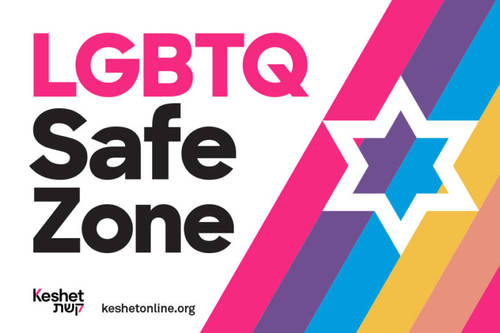|
As the Covid-19 pandemic has evolved, we sought advice from the Temple Beth-El Health & Safety Committee, consisting largely of healthcare professionals from our membership and chaired by Dr. Adam Falik, MD.
As we grappled with how to guide our approach, we utilized a framework based in Jewish values:
- Pikuah nefesh / saving lives - ensuring the safety of staff, congregants, and the wider community.
- Inclusion - striving to enable all community members to access our offerings
- Not putting “a stumbling block before the blind” - being mindful of crafting environments that support safe individual behaviors.
- Kol Yisrael arevim zeh l’zeh - taking responsibility for one another.
With these values in mind, our Health & Safety committee engaged in deep reflection, study, and conversation. Ultimately, we have chosen to adopt a phased approach to “re-opening” that is aligned with the World Health Organization’s May 12, 2020 guidelines that recommend the 14-day average rates of positivity in local COVID-19 testing to be lower than 5%. The WHO guidance is more conservative than Virginia guidance, and in accordance with the values statement above, we believe appropriate for our congregation.
That said, the positive test rate for the Richmond metro as reported by the Virginia Department of Health is generally trending lower and recently is 6-8% with a slight rise in the last week or so. It is possible that we could move to what we are calling Stage Bet (2) re-opening guidelines in the coming weeks. However, we do not pretend to be able to predict the virus’ spread. If Virginia sees the spike now hitting other states, we will maintain our current Stage Aleph (1) protocols, including our robust offering of online services and programs.
In preparation for our eventual move towards physical programs and services, please find a summary of the key guidelines we have adopted to maximize the health and safety of all involved.
As we make plans to move into Stage Bet, we hope to eventually accommodate up to 50 people for events that are either outdoors (e.g. parking lot / park) or in our Main Sanctuary, and up to 15 people for indoor events in selected locations. Initially, however, the number of attendees at our in-person programs will be lower until we gain confidence in our systems and we all become accustomed to the guidelines. We plan to continue offering as many online services and programs as possible, in order to maximize inclusivity.
Once we initiate Stage Bet, our plan is for the Sunday morning minyan to be our first in-person program (date TBD). Weather-permitting, we plan on holding the minyan at Parham outside under the front awning. God-willing, other services and programs will follow. Stay tuned!
High Holy Days
While we may hold some limited opportunities for in-person worship soon, it is very challenging to consider in-person Rosh Hashanah and Yom Kippur services with the customary 600+ people in the sanctuary. This is especially true given the research around the transmission risks inherent in indoor communal singing.
Recently, we formed a ritual sub-committee to partner with Rabbi Knopf and Cantor Rosenblatt in crafting an uplifting and safe High Holy Day season, with meaningful opportunities for all congregants. For example, we are considering parallel virtual morning services — with options like a traditional Shacharit service, a learner’s service, a meditation service, and a family service – followed by the community coming together (largely online) for the Torah service, sermon, Yizkor (on Yom Kippur), and final (musaf) prayers.
We are also exploring safe ways to come together in-person before and during the holiday season. Ideas include:
- Drive-in shofar service: Participants arrive at the Parham or Grove parking lot and remain in or near their cars. The short service will include live blowing of the shofar.
- Private or guided prayer / meditation in the sanctuary at pre-assigned timeslots for small groups or families with access to the ark.
- Distributed, small group Tashlich ceremonies utilizing a ‘haggadah’ or booklet
The committee would value your input via this BRIEF 2-minute High Holy Day survey: https://docs.google.com/forms/d/e/1FAIpQLSd1O7YX2CwGvkRFq70OyvQYMf6fPT9PtBdHt9lT1EpbAzAqRQ/viewform
|




